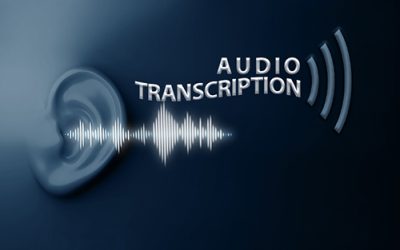Social distancing requirements and stay-at-home orders are having a significant impact on the legal industry. Courts are rapidly shifting to virtual proceedings in the wake of the pandemic, according to recent reports. With the increasing use of telephone and video conferencing technology for dispute resolution, many litigators are relying on legal transcription service providers to ensure quality transcription from the digital recordings.
Remote witness depositions can be conducted via telephone as well as real-time and recorded video. Remote video deposition allows display of video images of the witness and real-time transcripts. Exhibits can be uploaded and displayed through the platform for the witness and counsel to see. While some courts already have a program for video recording of hearings, in some cases a court order would be needed for a deposition to be taken by telephone or other remote means.
As remote hearings and depositions gain traction with the COVID-19 crisis, attorneys need to know how to manage them effectively and efficiently. Here are the key considerations to ensure proper verbatim records for high quality digital transcripts:
- Provide notice: The location of the deposition is the place where the deponent answers the questions. The participants in the deposition – the deponent, examining counsel, defending counsel, court reporter, and videographer – should be notified about time and location of the deposition. The notice should state the method of recording the testimony in the deposition notice – if by video conference, this needs to be informed. Attorneys should also ensure that the method used will enable the court reporter to record the proceedings and the other participants to communicate effectively. It must be also ascertained that the participants have access to the equipment and Internet access to participate in the deposition.
- Implement proper security protocols: There are a wide variety of video conferencing options available. In most legal matters, confidentiality is paramount and attorneys should consider various aspects when choosing a platform: where the data is hosted, whether recordings can be made, how the information will be shared, access rights to break-out rooms where private discussions are held, and cybersecurity of the participants sharing, handling, and storage of the materials. Both convenience and potential security risks must be weighed when choosing an approach. For instance, in patent and trade secret cases, laws prohibit converting sensitive confidential business information into electronic format. When handling such cases remotely, attorneys should take care to adhere to confidentiality obligations. Best practice is to confer with both sides on a protocol for using such information in a virtual deposition (Global IP and Technology Law).
- Handling communications: When taking a remote deposition, attorneys must inform all parties of the rules and etiquette involved. The goal should be to maintain professionalism during the proceedings. According to Global IP and Technology Law, attorneys can better manage communications in a virtual deposition by
- Reminding to participants to not to talk over each other and keep microphones on mute when not actually participating in the proceedings
- Instructing witnesses to pause before answering each question
- Considering a condition that objections will be made after a question is answered
- Considering barring communication between the deponent and defending counsel, except when about it is about asserting a privilege
- Restricting mobile use from the start to the end of the proceedings, including no texting between the deponent and defending counsel
- Ensure meaningful participation with proper equipment: Attorneys must plan for the smooth conduct of the deposition or hearing.
- Ensure that all participants have the necessary equipment – computer with webcam, headset, etc. – and have a stable Internet connection
- Advise participants to test run the platform in advance of the hearing, check audio and video, and practice using it. They should know how to mute and unmute themselves.
- Practice using the electronic documents to become familiar with them in advance of the hearing
- Consider using two screens (or devices) with the proceeding on one screen and documents on another screen
- Test the camera and lighting in advance. The deponent would need to adjust the video screen so that lawyers can see his/her facial expression and body movements
As the proceedings can be interrupted by technical issues, experts recommend starting early for a full day deposition and ensuring that all parties can attend. Attorneys can also consider agreements extending the duration for a remote deposition beyond the allotted time.
It can be expected that telephone and video conferencing will be increasingly used in litigation, mediation and arbitration. However, for lawyers, transcribing legal proceedings can be a real time monster. Digital transcription services are a practical option to obtain properly formatted written transcripts that match the spoken word. Outsourcing legal transcription to an expert can save time and money, and allow lawyers to focus on their core tasks.




